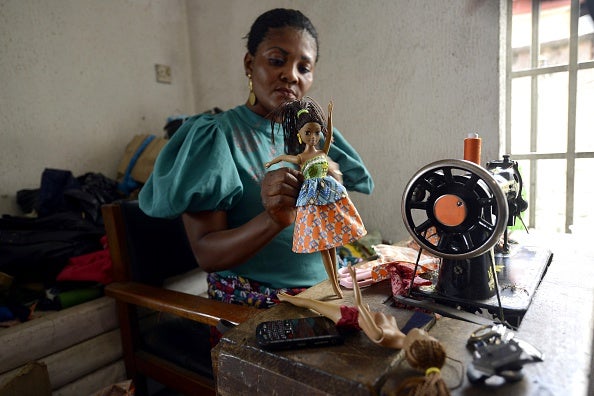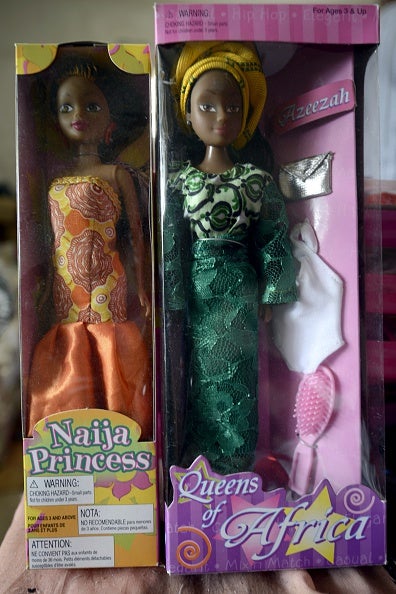Nigerian doll 'Queen of Africa' outsells Barbie
Eight years ago there wasn't a black alternative to Barbie, but today Taofick Okoya's toy sells around 9,000 a month

Your support helps us to tell the story
From reproductive rights to climate change to Big Tech, The Independent is on the ground when the story is developing. Whether it's investigating the financials of Elon Musk's pro-Trump PAC or producing our latest documentary, 'The A Word', which shines a light on the American women fighting for reproductive rights, we know how important it is to parse out the facts from the messaging.
At such a critical moment in US history, we need reporters on the ground. Your donation allows us to keep sending journalists to speak to both sides of the story.
The Independent is trusted by Americans across the entire political spectrum. And unlike many other quality news outlets, we choose not to lock Americans out of our reporting and analysis with paywalls. We believe quality journalism should be available to everyone, paid for by those who can afford it.
Your support makes all the difference.There's a new Barbie in town. She's a queen, she's black, she wears traditional African costumes — and she's not actually a Barbie.
Created by a Nigerian man, Taofick Okoya, seven years ago after he couldn't find a black doll for his niece, the Queens of Africa have since beaten Barbie to become one of the best-selling toys in Africa's most populous country.
The 43-year-old Okoya sells between 6,000 and 9,000 'Queens of Africa' and 'Naijia Princesses' a month in Nigeria, and claims to have up to 15 per cent of the country's toy market.
The dolls, which sell for equivalent to £4.50, resemble Barbie dolls insomuch as they are thin - earlier big bodied editions weren't as popular - but their African outfits and darker skin stands them apart.

Nigerian children see themselves in these increasingly popular dolls, with one customer - five-year-old Ifunanya Odiah - proudly proclaiming at a Lagos shopping mall: "I like it. It's black, like me."
Earlier this month, Okoya told ELLE: "I spent about two years campaigning on the importance and benefits of dolls in the African likeness.
"During that process, I realized greater social issues such as low self esteem, which led to the passion to make a change in the coming generation. It's been a tough journey but one I have enjoyed."
American manufacturer Mattel, which does sell black Barbies, is not a large presence in the region and told Reuters it has no any plans for expansion.
Mattel yesterday announced global Barbie sales fell by 12 per cent last quarter.
The success of the Queens of Africa is another example of the emergence of a middle class in Nigeria, which along with Mexico, Indonesia and Turkey is thought to be one of the world's awakening economic giants.
Toy sales in emerging markets such as Nigeria are growing at a rate of 13 per cent, as opposed to just 1 per cent in the developed world, suggesting that Okoya's Queens, Princesses and their to-be successors may have a successful stint on the shelf.
Join our commenting forum
Join thought-provoking conversations, follow other Independent readers and see their replies
Comments